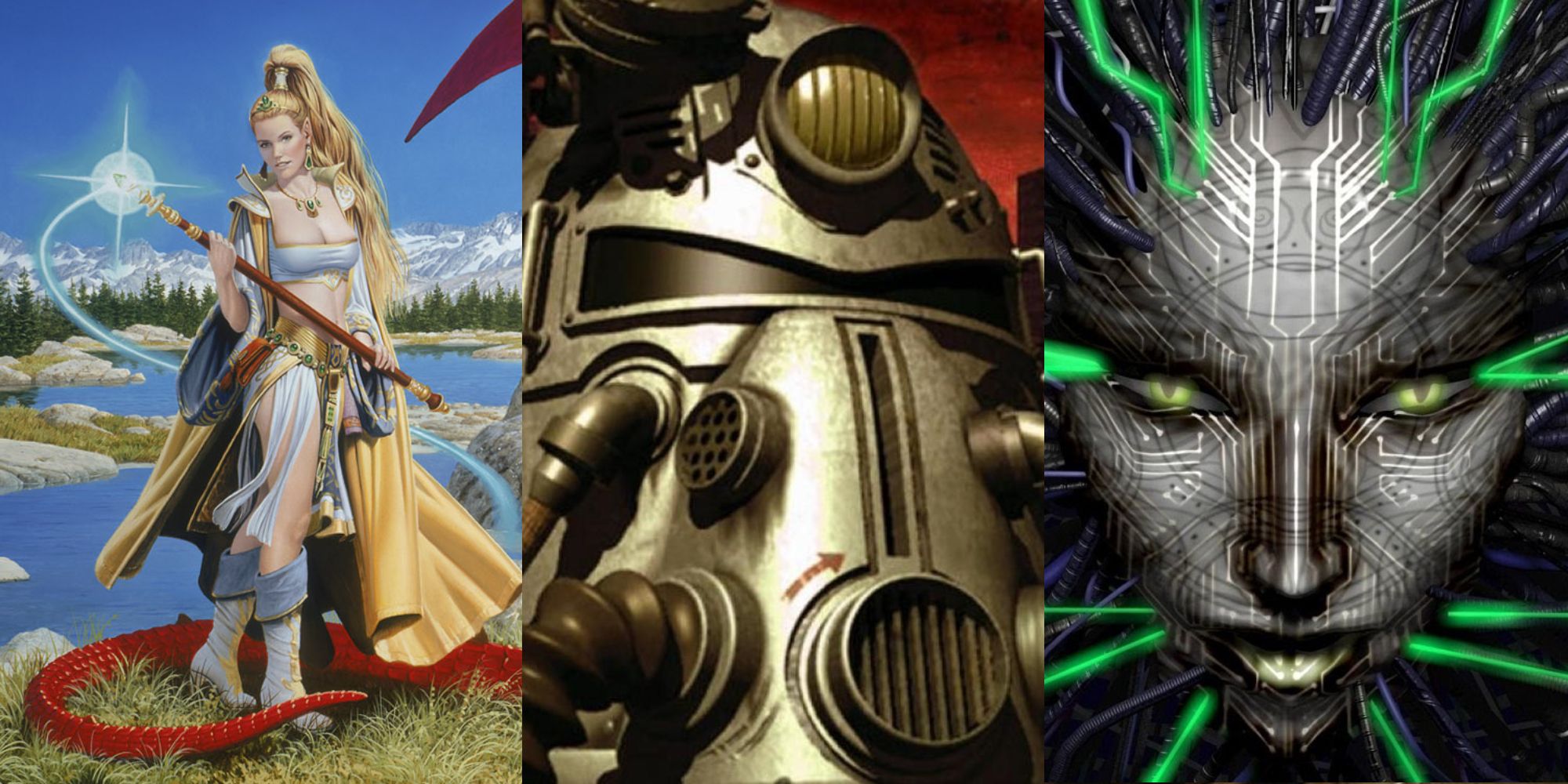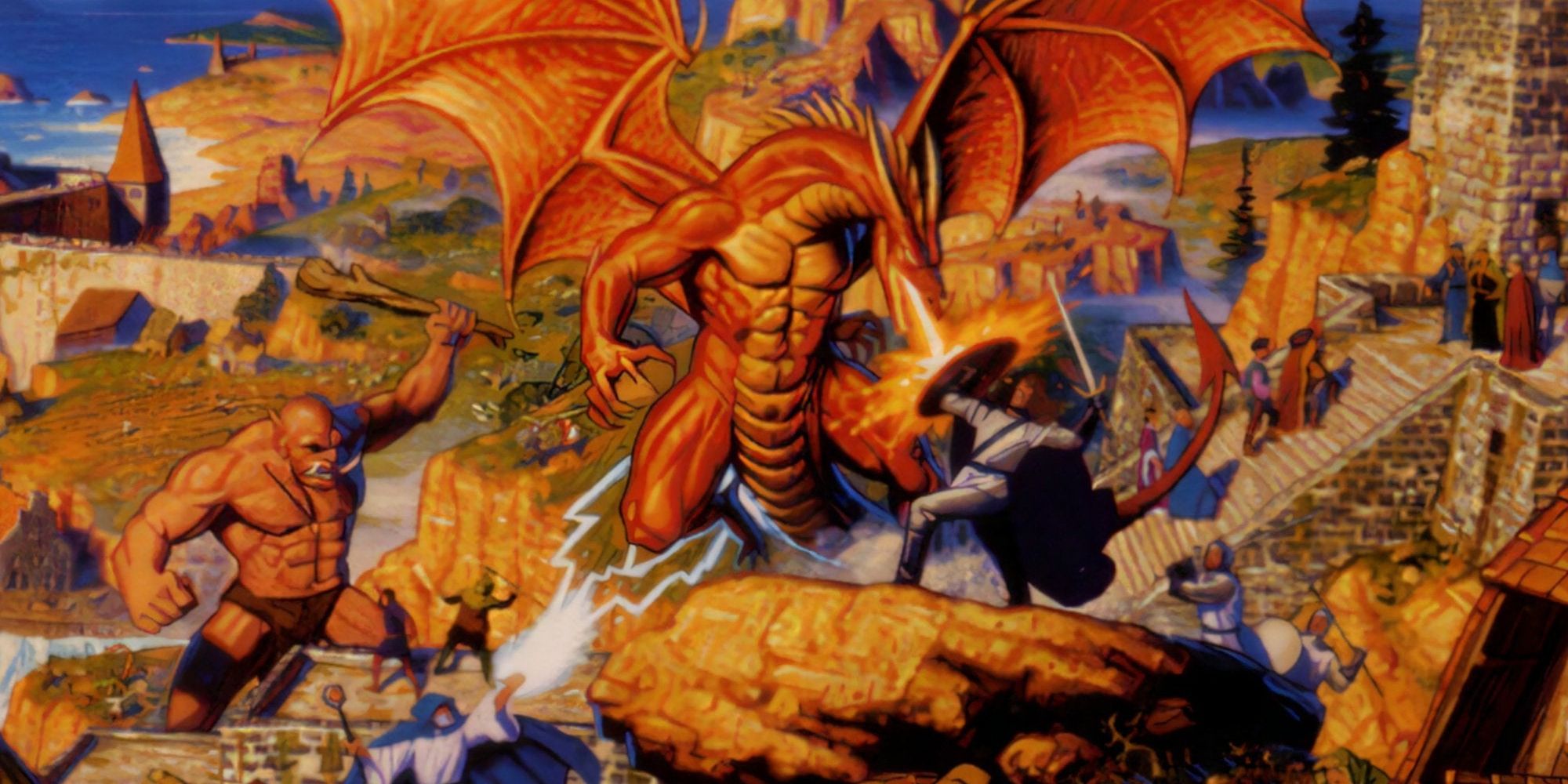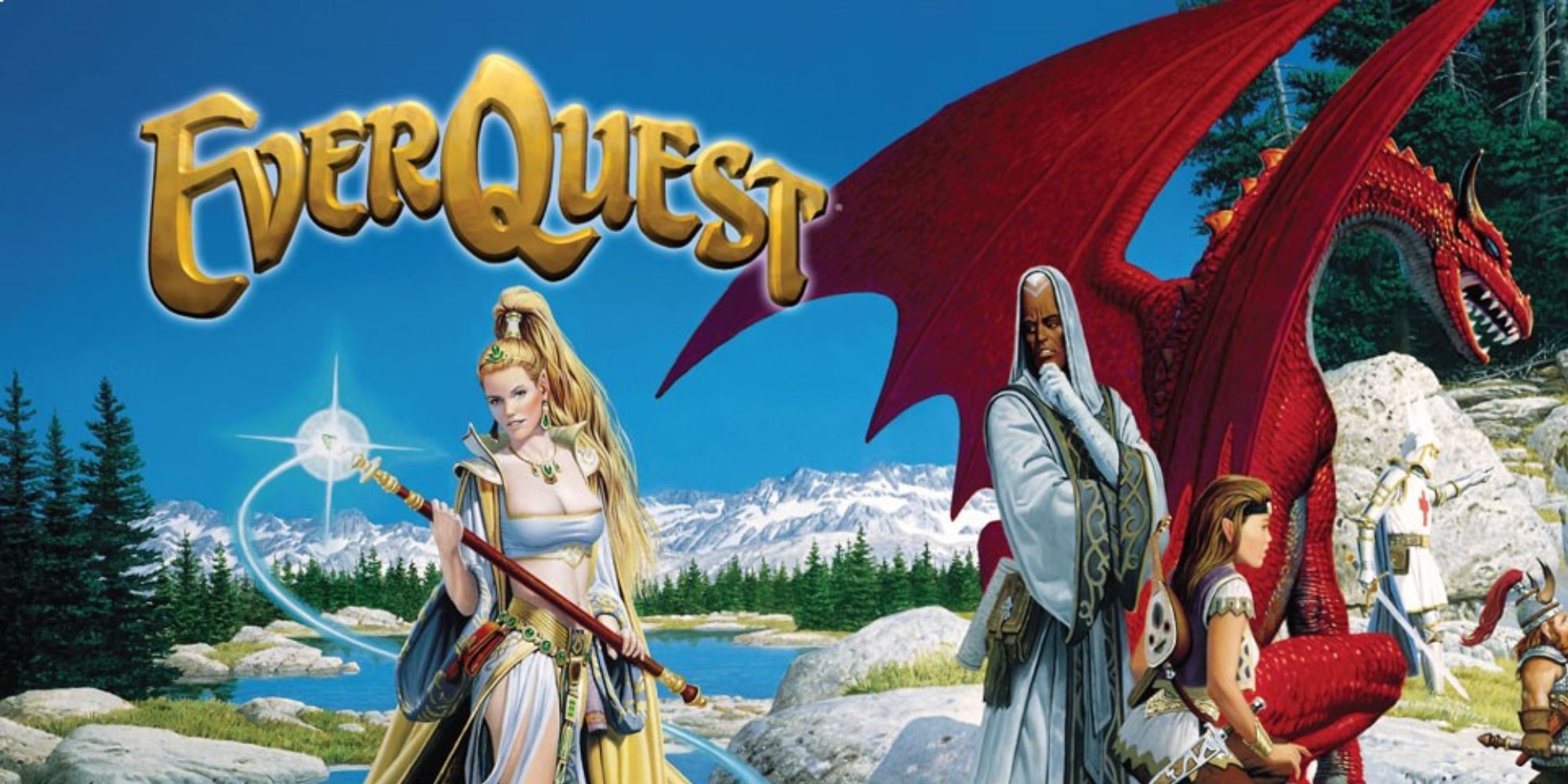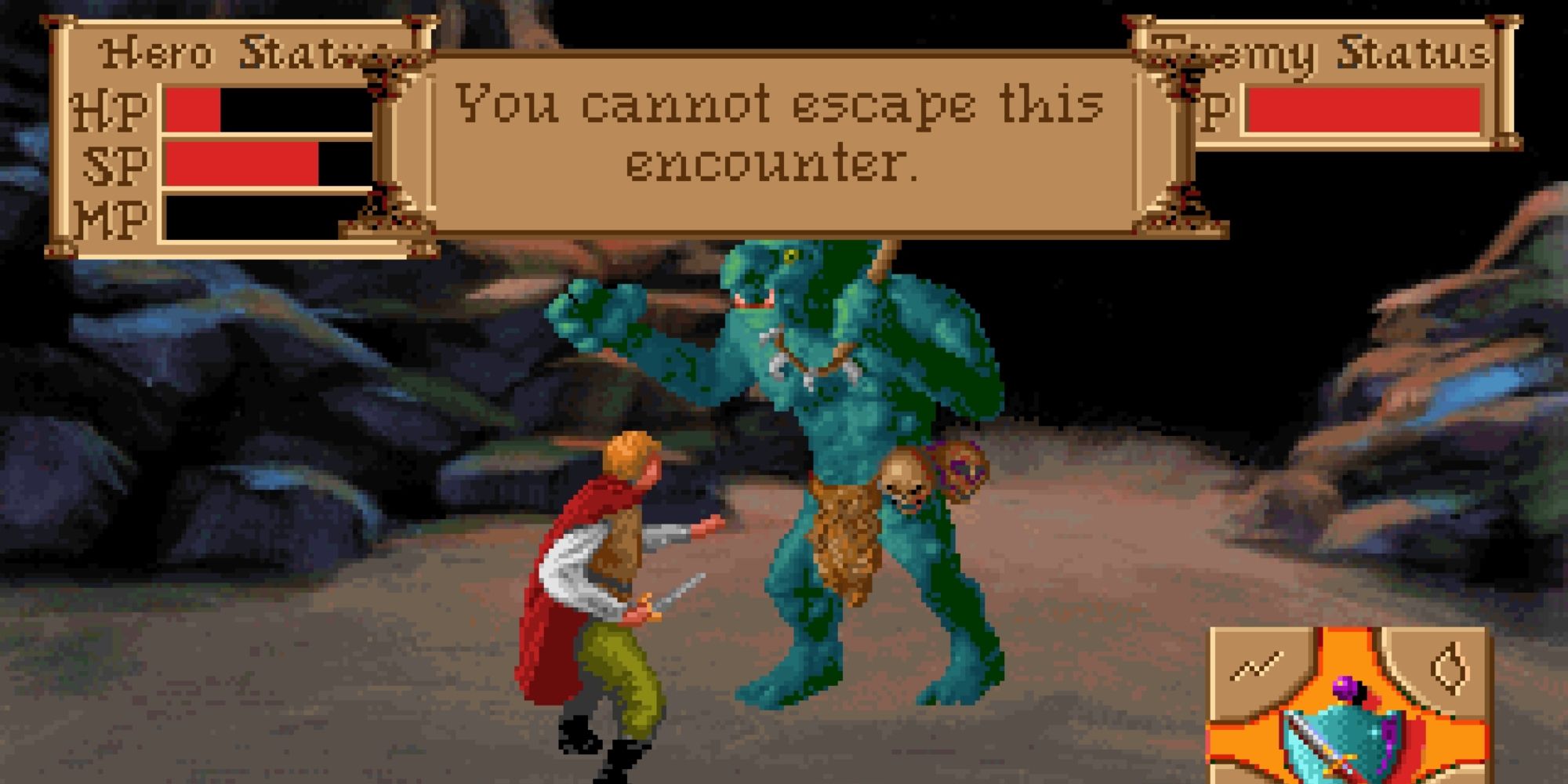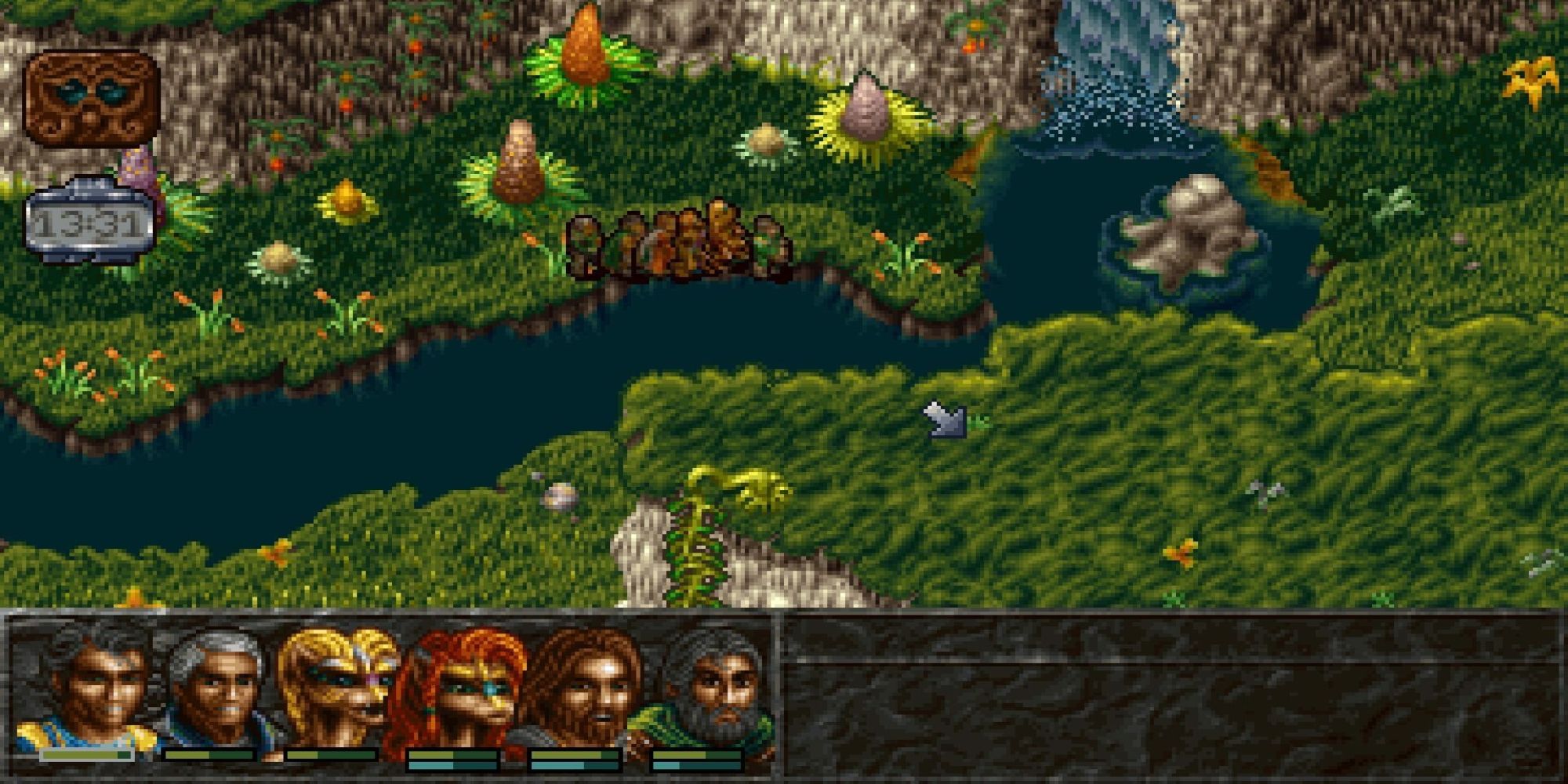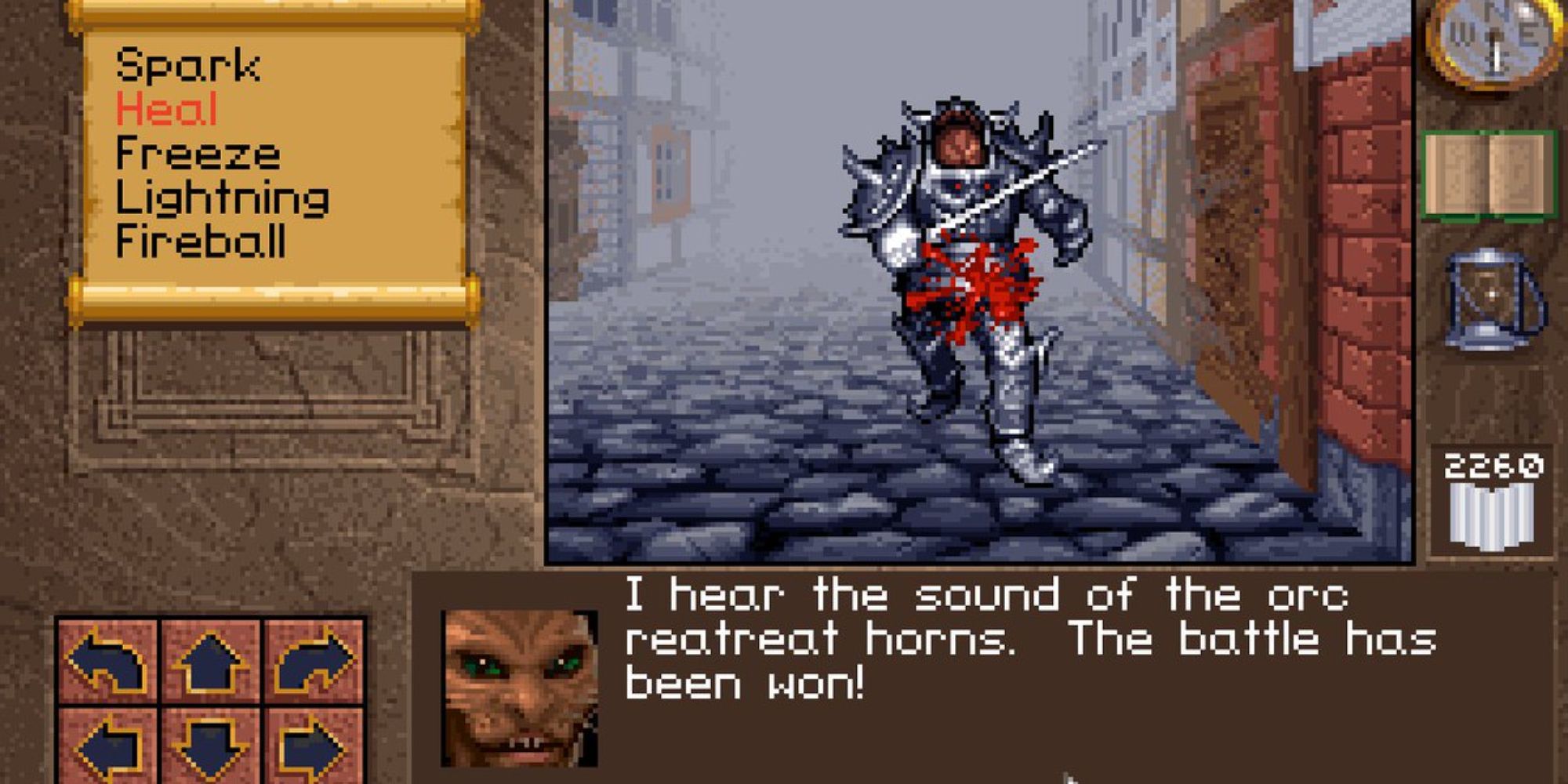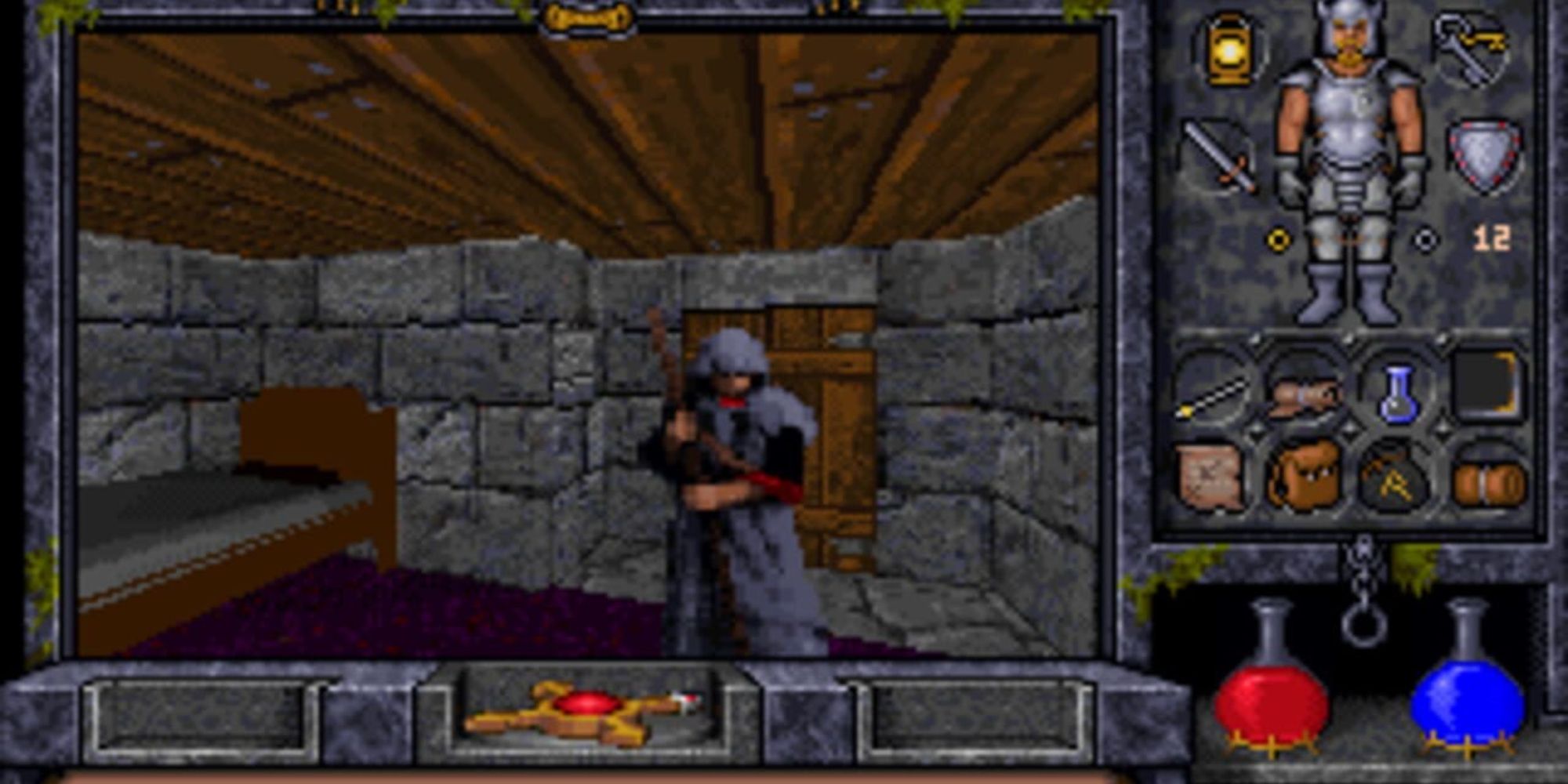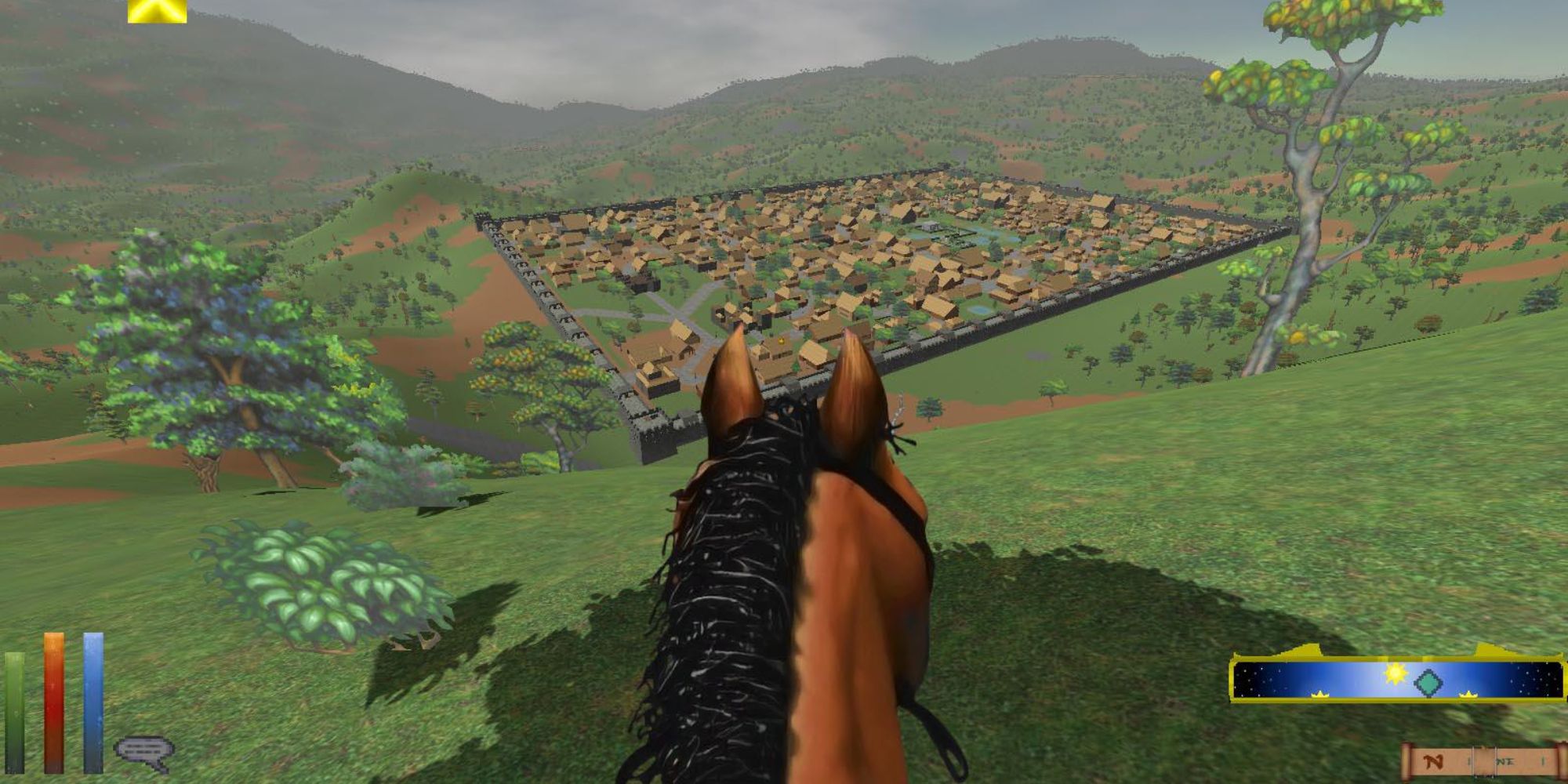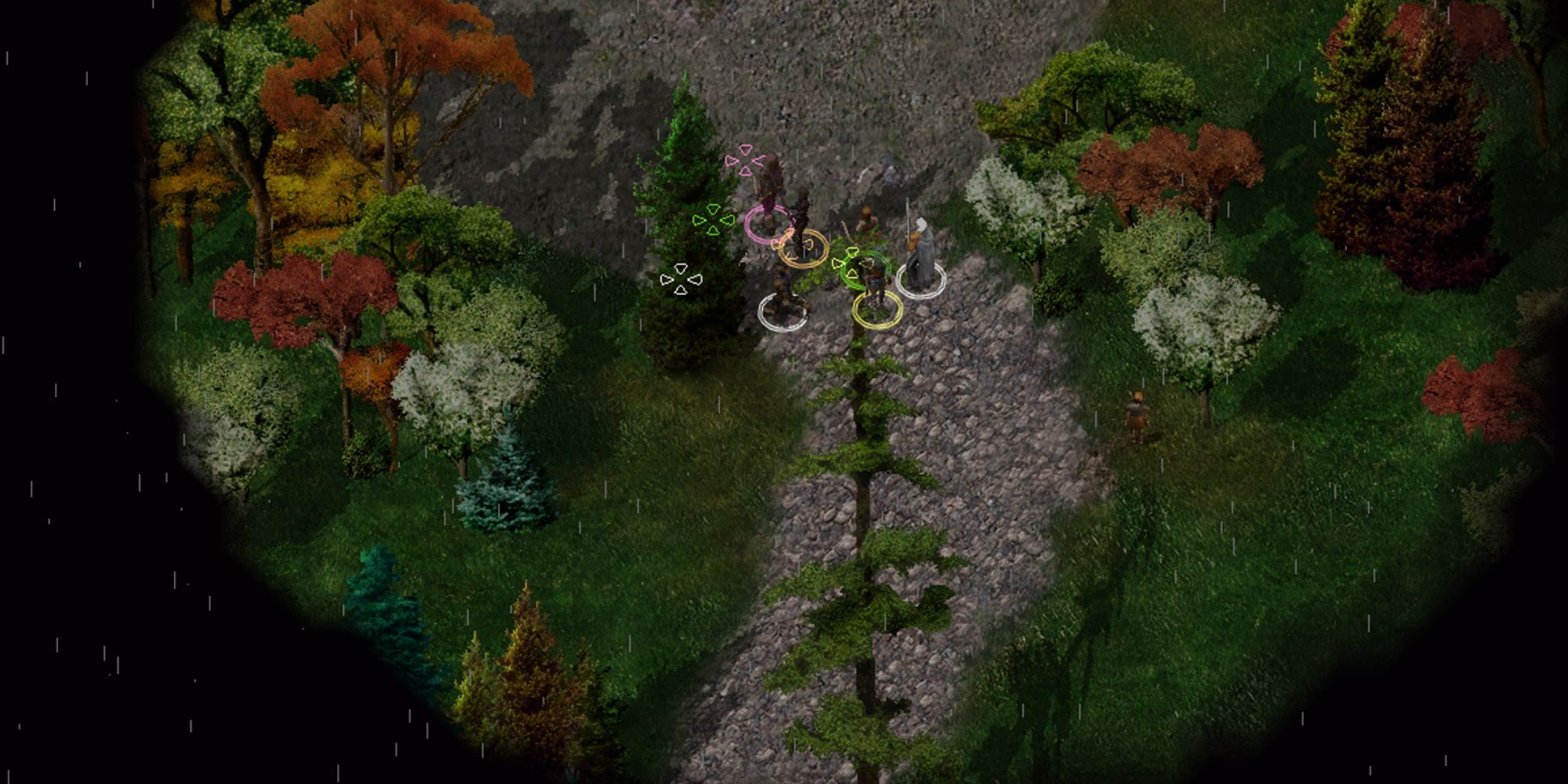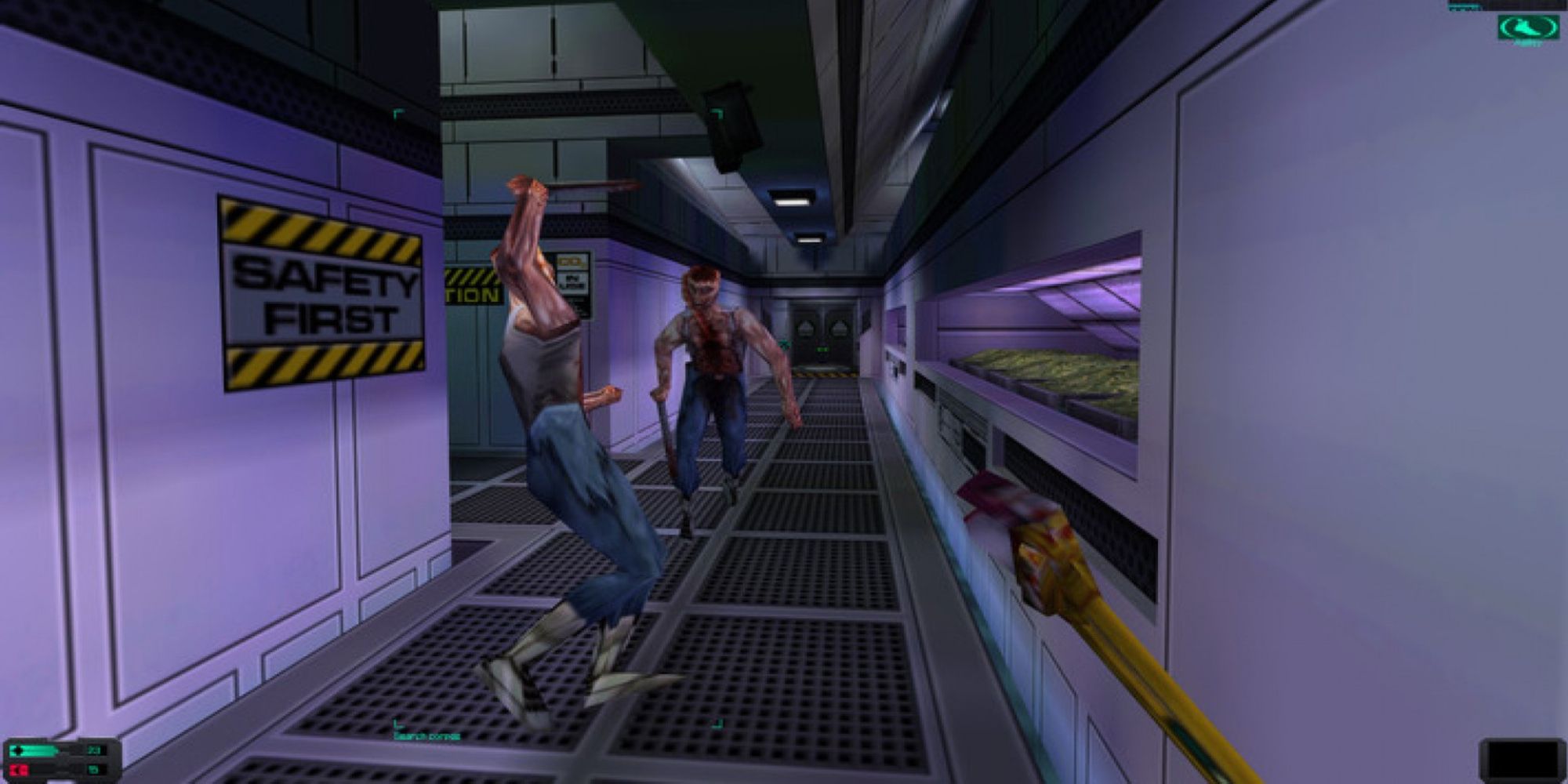RPGs are one of gaming’s oldest and most beloved genres, beginning life as simple text-based affairs inspired by Dungeon & Dragons back in the 80s. Most of these early RPGs were intensely technical and therefore stuck to home computers while the consoles of the day saw simpler action games.
RPGs saw a massive divergence in the 90s, however. Japanese developers were making console RPGs much more common, with games such as Final Fantasy VII or Chrono Trigger leading the charge. However, the PC market remained strong during this era, with a lot of complex new experiences advancing the genre in other directions, and many of these remain classics to this day.
10 Ultima Online (1997)
MMOs have a complex history, beginning life as Multi-User Dungeons, or MUDs, on local networks. It was the wide adoption of the home internet in the 90s that saw the genre gain prominence, however, and Ultima Online is often cited as the game that popularised the genre.
Looking at it now, Ultima Online seems a little primitive compared to what we expect of an MMO today. Its gameplay was top-down and drew heavily from the 80s-era Ultima games that inspired it. However, this didn’t stop the game from becoming EA’s fastest-selling game of the time and building a devoted community beyond the developers’ expectations, many of whom are still playing to this day.
9 EverQuest (1999)
While Ultima Online was hugely popular, its success would soon be overtaken. The first MMO to use full 3D environments, EverQuest was released two years later and quickly took the crown, becoming the new best-selling online-only game for the time.
It was so popular that GameSpot remarked that it was hurting productivity in the entire industry. It also led to concerns about video game addiction being raised more commonly due to the game’s addictive gameplay loop. While its popularity has fallen since the release of World of Warcraft and many other similar titles, its place in MMO history is undeniable.
8 Quest for Glory (1992)
In the 80s and 90s, Sierra On-Line had built a reputation for their brilliant point-and-click adventures, known for their humor and brutal deaths. After the success of the King’s Quest series, it’s not surprising that they’d look to turn the formula into a full RPG, which would go on to be one of the company’s biggest-selling titles.
Quest for Glory: So You Want To Be A Hero was a hybrid of these adventure games and an RPG. Originally launched as a text-based adventure in 1989, the 1992 remake saw it switch to a point-and-click format. The game was also ambitious, featuring a full day/night cycle that affected the environment, and skills were obtained through natural use rather than through experience points.
7 Albion (1996)
While most RPGs of the era stuck to traditional swords and sorcery aesthetic, Albion stood out with a unique sci-fi setting. The player character has been sent into deep space to recover natural resources from a distant planet, but when he crashes, he discovers an entire world of sentient creatures.
An inventive RPG, it received praise at the time for its unique setting and for how well it balanced its combat, story, and exploration. It’s less well known today, but it’s a hidden gem that’s worth a revisit via its GOG.com release.
6 Lands of Lore: The Throne of Chaos (1993)
Before Westwood would go on to make a name for themselves as the masters of real-time strategy with Command & Conquer, there was Lands of Lore. The first game from the studio after their acquisition by Virgin Interactive, they decided to build on their experience with the DnD-based Eye of the Beholder series with an original property.
A first-person dungeon crawler, players would venture through maze-like locations battling enemies with a real-time combat system as they venture forth to save the King and defeat an evil witch. It gained critical and commercial success at the time and would even gain a CD-ROM re-release with narration by Patrick Stewart.
5 Ultima Underworld II (1993)
While the main Ultima games would see console releases throughout their time, the second (and last) entry in the Underworld subseries would only release on home computers. A first-person RPG, it built on its highly influential predecessor by expanding its nonlinear gameplay and placing the player in a vast open world, a huge feat for its time.
The Ultima Underworld games left a huge impact on much of the industry, with The Elder Scrolls, Deus Ex, and Bioshock all citing them as influences.
4 The Elder Scrolls 2: Daggerfall (1996)
Before Skyrim, and even before Oblivion and Morrowind, there was Daggerfall. While the first Elder Scrolls game was a huge success, it’s this second game that really set the standard for the franchise to come.
Daggerfall boasted the largest world of any game of the time, a full 3D environment containing 15,000 towns as Bethesda wanted a game that could be played for years, much like a tabletop RPG. It was impressive for the time and its critical and commercial success would lead to a franchise that persists to this day. Once Elder Scrolls 6 enters development after Starfield releases, of course.
3 Fallout (1997)
The Fallout of 1997 was very different from the Fallout of today. Using an isometric view, the original game was a complex strategic RPG with a turn-based combat system. Originally designed to be a spiritual successor to 1989’s Wasteland, Fallout stood out in a market saturated by fantasy settings with its post-nuclear wasteland setting.
This led to a revival in the then-declining RPG market and helped kickstart a beloved franchise that would continue for years to come, picking up accolades consistently with each new entry.
2 Baldur’s Gate (1998)
Generally considered to be one of the greatest RPGs of all time, Baldur’s Gate took concepts from Dungeons & Dragons and turned them into a video game full of deep mechanics based on Advanced DnD. Much like its tabletop counterpart, players were part of a party of adventurers heading out on quests along the Sword Coast, featuring a range of classes and abilities.
The game was a commercial hit, vastly surpassing expectations, and its influence cannot be overstated. Other similar DnD games soon followed, such as Planescape: Torment and Neverwinter Nights, it made a name for BioWare, who would go on to become one of gaming’s most beloved developers. Baldur’s Gate itself now has a third entry currently in Early Access, with the full release expected in 2023.
1 System Shock 2 (1999)
System Shock was already a game ahead of its time, but its sequel would take its concepts to new heights and become one of the most influential games of all time. A hybrid of first-person shooters and complex RPGs, with the team’s previous work on the Ultima games a major factor in this, System Shock 2 is like little else from its time.
With character customization, emergent gameplay and a complex story featuring one of gaming’s most iconic villains in SHODAN, System Shock 2 redefined what an RPG could be.

